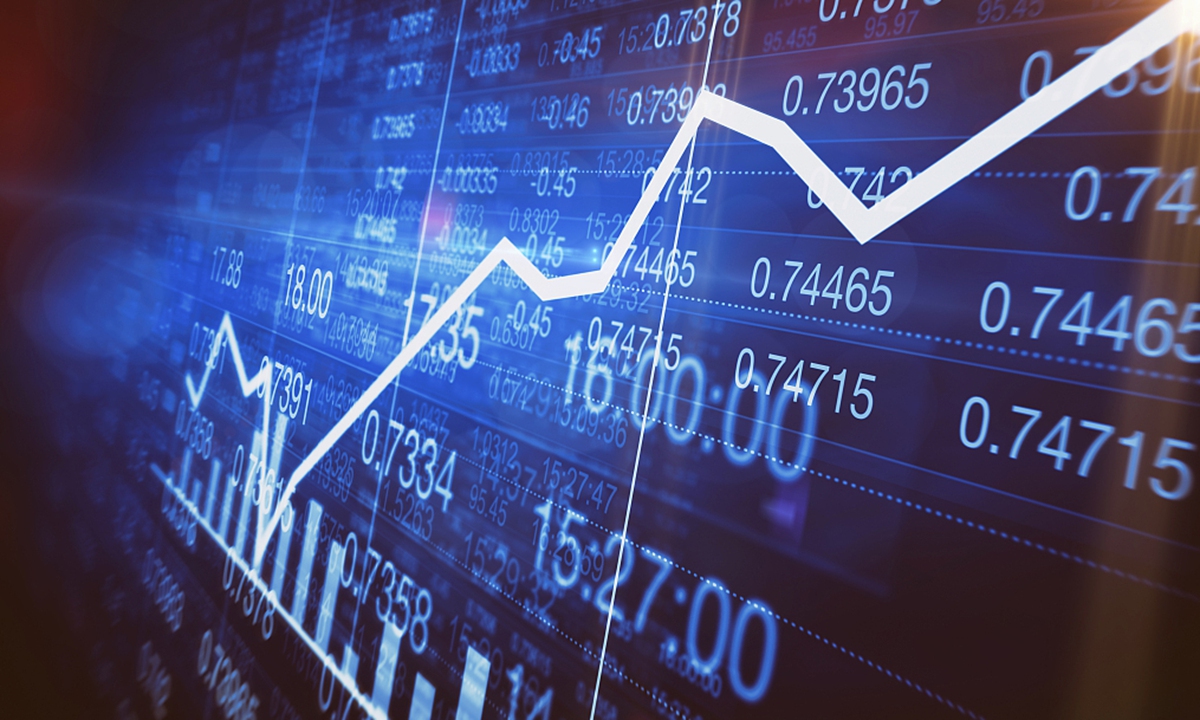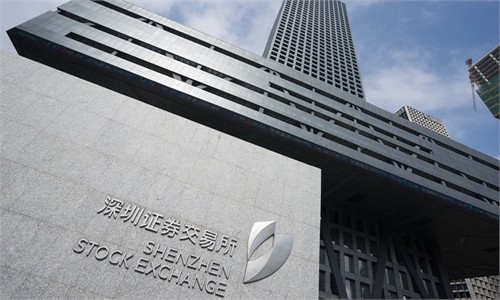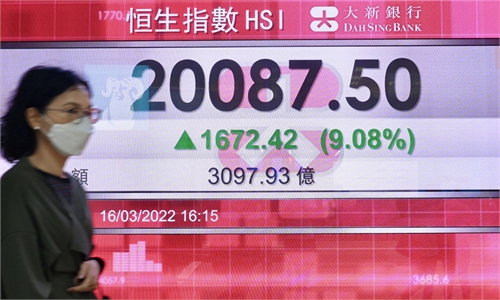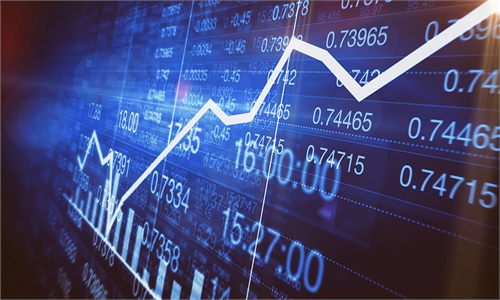Chinese shares set to ride on hopes of tranquility, monetary support amid uncertainties

stock market Photo:VCG
After a wide ride last week that saw an about-face in investor sentiment, Chinese shares are expected to leverage tailwinds, including a "constructive" video call between Chinese and US leaders, and possible monetary easing in China, to remain in a rebound mode, according to market watchers.
The high-profile video call on Friday between President Xi Jinping and US President Joe Biden at the latter's request is seen as enabling a shift toward a restored appetite for risk as investors gear up for greater optimism that the world's top two economies can maintain communication despite differences.
Agreeing that the video call was constructive, the two presidents directed their teams to promptly follow up and take concrete actions to put China-US relations back on the track of steady development, and make respective efforts for the proper settlement of the Ukraine crisis, according to the Xinhua News Agency.
The video call on Friday apparently augurs well for the global market at large, Dong Shaopeng, an expert advisor for the China Securities Regulatory Commission, told the Global Times on Sunday.
Still, the situation in Ukraine remains complicated and it can't be asserted that the fallout on the market of the Ukraine conflict is over, Dong continued.
Additionally, while the Chinese authorities have sent a clearly positive signal to the markets about progress on China-US audit talks, uncertainties still linger over the possibility of further financial crackdowns that the US might consider on China, he noted.
The veteran market observer hoped for an eventual settlement of the auditing discrepancies between China and the US, which would be good news for not only US-traded Chinese shares but the entire US market.
Also worth noting is that the People's Bank of China (PBC), the country's central bank, has been biding its time on a possible cut in reserve requirements or even interest rates despite mounting market expectations for monetary easing as an official gesture of underpinning.
"I reckon a rate cut could be considered this coming week and it's supposedly a universal cut," Dong said, adding that "a rate cut would be more preferred to stake out a conspicuous endorsement of a stable equity market."
Stocks on the Chinese mainland and Hong Kong exchanges as well as US-traded Chinese shares largely continued to rebound for the most recent three trading sessions, after a meeting of the State Council's Financial Stability and Development Committee on Wednesday gave the markets a much-needed confidence boost.
Chaired by Vice Premier Liu He, the key financial meeting addressed pressing concerns about clouded market prospects.
In a sign that the market-reassuring message from the meeting would still reverberate, Financial Secretary of the Hong Kong Special Administration Region Paul Chan Mo-po wrote in a blog on Sunday that market confidence has stabilized, with a rebound in Hong Kong shares in the wake of the key meeting.
"When the market experienced extreme volatility over the past week, we were keenly monitoring market changes and ensured … there were no abnormal activities that might severely affect financial stability, and that systemic risks don't exist," read the blog.
Meanwhile, the global markets will keep a watchful eye on the gradual restart of the Moscow Exchange on Monday. While a fall in Russian shares is considered inevitable if the exchange's stock section fully resumes trading, experts reckon the resumption itself is a sign that Russia is ready as measured by its in-house capacity to resist pressures.
The restart of the Moscow Exchange is in focus, as the market tends to price in the impact on global markets of a potential fall in Russian shares should trading be reinstated.
The Russian currency has weakened substantially amid Western sanctions since the Moscow Exchange suspended trading in all markets on February 25, indicating a massive fall in Russian shares, according to Dong.
The ruble has plummeted over 20 percent against the US dollar during the period, market data showed.
Still, the trading restart is an indication that Russia has sufficient internal buffers against an accumulation of Western pressures, Li Haidong, a professor from the Institute of International Relations of China Foreign Affairs University, told the Global Times on Sunday.
Regardless of wide-ranging sanctions on Russia imposed by the US and its allies, it seems that Russia might still bank on its own resources and previous economic robustness to withstand the predicament, Li said.
"We are ready to resume trading gradually. On Monday, the stock section of the Moscow Exchange will restart trading in federal government bonds," Russian central bank Governor Elvira Nabiullina announced on Friday.
"To prevent excessive volatility and ensure a balanced liquidity position in this segment at the stage of the reopening, the Bank of Russia will purchase federal government bonds. These purchases will be made in the amounts needed to prevent risks to financial stability," according to a statement on the website of the Bank of Russia, citing the Russian central bank governor.



